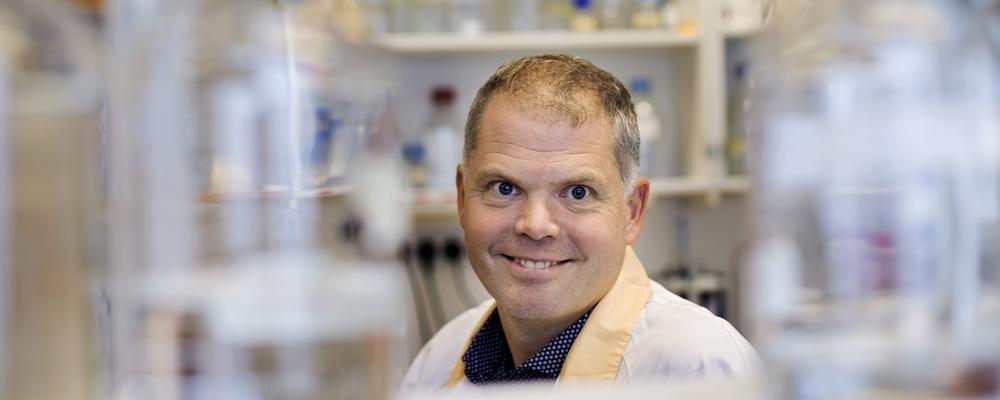What's your research about?
'We are studying the interactions between the microbiota—the trillions of bacteria residing in our gut — and our body, as well as with the food we eat. In particular, we are studying how the microbiota can affect our metabolism, and whether it can contribute to metabolic disease.'
'In fact, we have demonstrated that the microbiota is altered in metabolic diseases such as type 2 diabetes and cardiovascular disease. Our current research is mostly directed towards understanding whether the microbiota can contribute to disease, or whether it just reflects the disease state.'
We have demonstrated that the microbiota is altered in metabolic diseases such as type 2 diabetes and cardiovascular disease.
'In addition, we are working towards understanding the mechanistic underpinnings of how the microbiota contributes to disease, and if we can manipulate the microbiota to treat metabolic diseases.'
Why is this so interesting?
'I think it is because it is relatively easy to understand for everyone. For myself, I am absolutely fascinated about the fact that we carry almost 1.5 kilo of bacteria in our gut, an entire ‘organ’.
'I like to view the microbiota not only as an organ, but also as a bioreactor that can convert different macronutrients to highly bioactive molecules, which can affect various (patho)physiological processes in the body.'
How did you become interested in this subject?
'I have been studying the microbiota for more than 15 years. Back then, no one was interested in the microbiota. But I was fascinated about how this organ, which affects how we degrade macronutrient such as dietary fibres, and how these processes may contribute to our metabolism.'
At that point in time most people considered all bacteria bad, and most of the research focus was on pathogenic, rather than commensal, bacteria.
What are you studying right now?
'We are using a translational research approach to understand if the microbiota is altered before onset of metabolic disease, and also trying to understand if it mainly signals to the host by producing bioactive metabolites. Hopefully, we can capitalize on this knowledge to understand how the microbiota may contribute to metabolic disease.'
What pieces of the jigsaw can you research contribute to your field?
'I think we can contribute with three aspects: 1) demonstrate causality – that the microbes contribute to disease, 2) explain underlying mechanisms by which the microbiota contributes to these processes, and 3) potentially contribute with some therapeutic approaches based on the microbiota.'
What has been the best moment or highlight in your research career so far?
'I have had two. First when I, as a postdoc, identified that the microbiota could contribute to obesity. This was the first observation of its kind.'
I identified that the microbiota could contribute to obesity.
'It has been very exciting to see how the field has unfolded thereafter. The other is our recent identification of how the bacterially produced metabolite imidazole propionate can cause insulin resistance.'
How can your research benefit society?
'Of course, it is important. Knowledge is important in all societies. I hope that we will contribute with well-trained students and fellows who has developed a critical and scientific mindset, but also with new knowledge on how the microbiota interacts with their host. Of course, I dream that we one day will be able to base treatments on our research.'
Future challenges in my research field are the development of treatments based on the microbiota.
'The future challenges in my research field are the development of treatments based on the microbiota, and also making sure that therapeutic claims in the microbiome field are based on scientific facts. There are many unsubstantiated statements floating around at the moment.'
